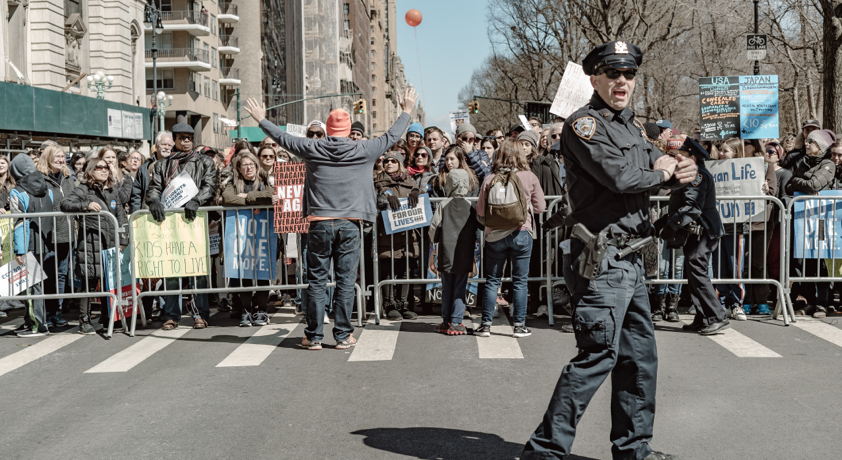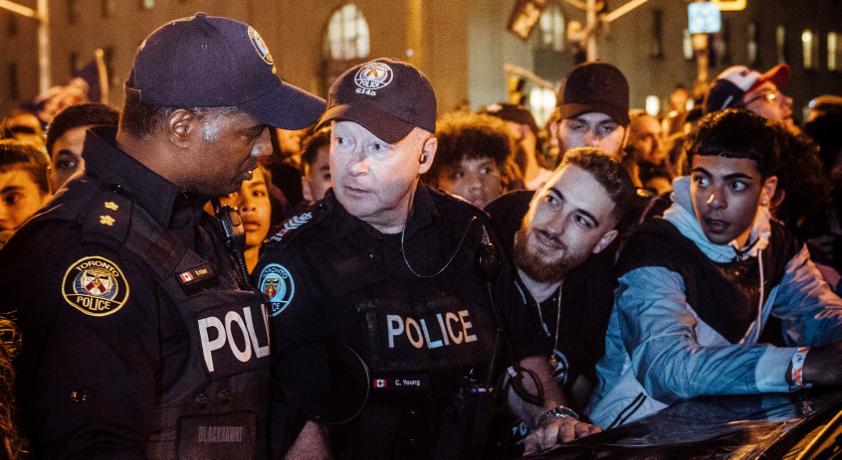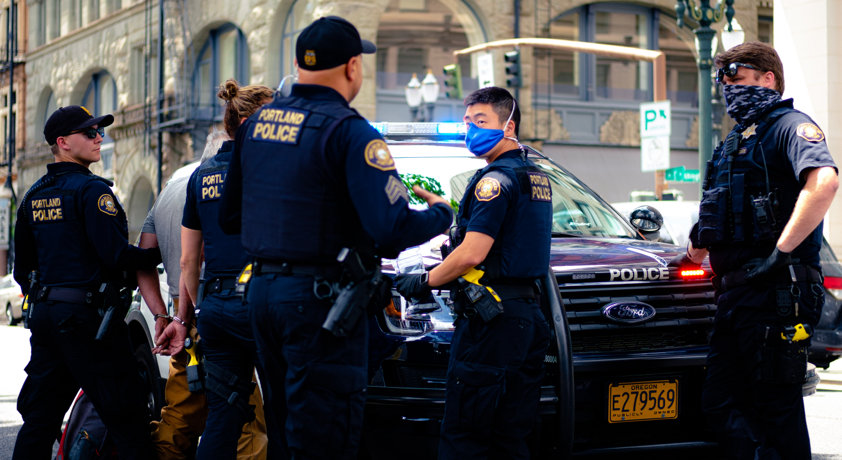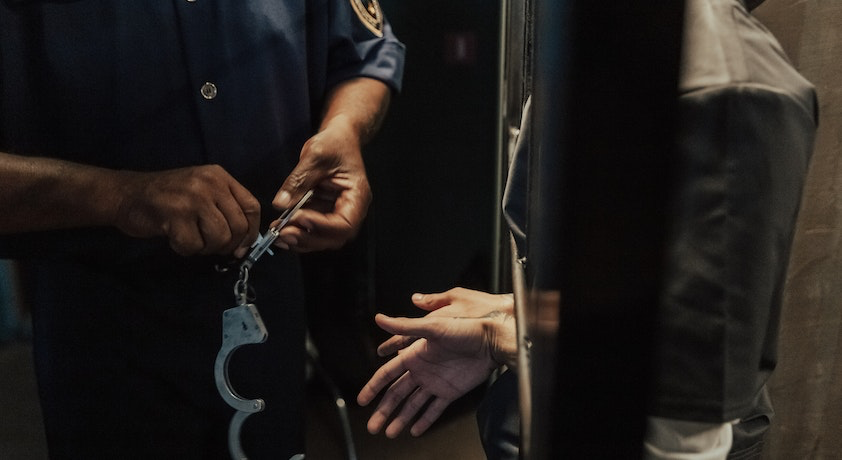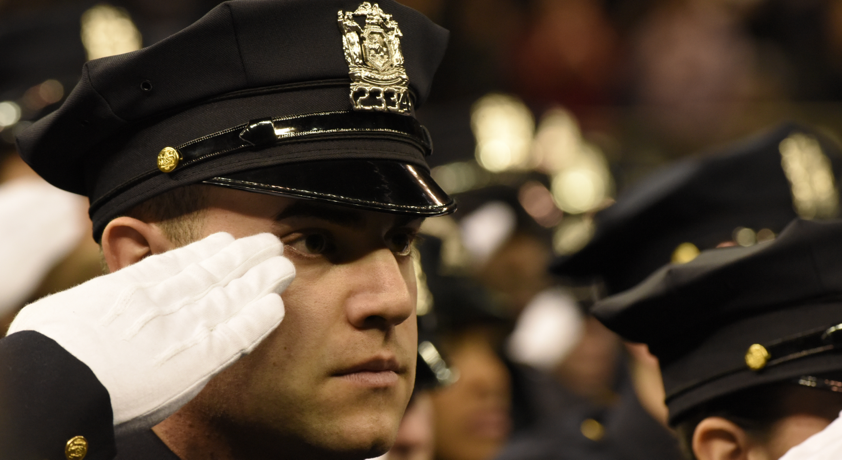The Importance of a College Degree for Police Officers
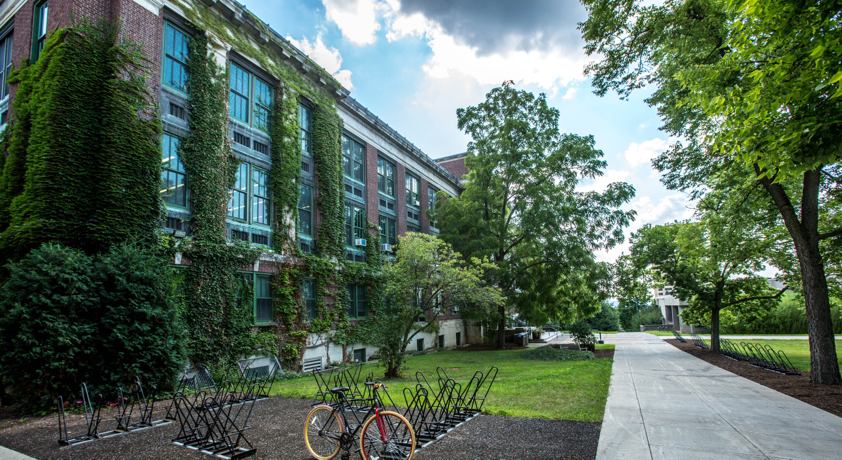
While there is no doubt that the role of the police, the use of force by police officers, and police department operations have long maintained a cozy spot in policy discussion and public conversation since the introduction of the first police force in the U.S. (Boston, 1838), today, these issues are more contested than ever before.
With escalating reports of police brutality and violence and more criminal activity, the current hiring, training, and promotional policies within police departments across the United States are being scrutinized with an aggressive eye. One of the most commonly cited topics of discussion is the importance of a college degree for police officers as a means of decreasing the use of unnecessary force and more effectively solving crime.
Understanding Current Policies on Education & the Role of Higher Education in Police Work
This article seeks to answer the following question: What role, if any, would requiring new cadets to hold a four-year degree have on police forces internally, as well as the public at large? To answer this question, the following will address current hiring and promotional policies, the relevancy of a college degree in police work, the perceived public benefits of a four-year degree requirement, and the direct benefits to cadets and officers with college degrees.
A Brief Review of Current Hiring and Promotional Policies
Police Department Education Requirements
Currently, approximately one percent of local police departments in America require their officers to hold four-year degrees, as highlighted by Reflections from the One-Percent of Local Police Departments with Mandatory Four-Year Degree Requirements for New Hires: Are They Diamonds in the Rough? by Diana Bruns. And what’s more, only eight percent of police departments in the U.S. require officers to have attended any college at all. 83 percent of U.S. police agencies require officers to hold a high school diploma.
With more than 17,895 law enforcement agencies employing 1.1 million full-time police officers working in the U.S., as well as an additional 100,000 part-time employees, this means that fewer than 200 police departments require their police officers to hold four-year degrees from an accredited college or university. Some police departments have a combination of requirements—only some of which must be satisfied—regarding the education levels of new cadets. For example, the New Jersey State Police’s minimum qualifications for applicants include:
- A bachelor’s degree, or
- An associate degree or the completion of 60 credits and two years of employment, or
- The completion of 30 college credits and at least two years of active military duty service.
While there are certainly officers who hold four-year degrees who work for non-degree-requiring agencies, it is safe to assume that the number of police officers who do not hold a four-year degree far surpasses the number of those who do.
Police Department Promotional Policies
Much like hiring, promotional policies vary on a department-to-department basis. While some police departments may base a promotion on the attainment of a four-year degree, others do not require an officer to have a four-year degree prior to receiving a promotion. And in some departments, holding a four-year degree from the get-go may mean being hired at a higher salary or a higher position than someone who does not hold a degree. In other words, while a higher degree may have an effect on promotional opportunities, a four-year degree is also irrelevant in many cases.
Police Department Hiring Policies
If police officers are not hired based on academic merit, what then, are they hired based upon? Originally, police officers were hired on objective and archaic standards: “White males who are a certain height and who could lift a certain amount and who had 20-30 correct vision.” Today, the hiring process is much more thorough; police officers must pass a psychological examination, a background check, a written exam, and a physical examination. In addition to the hiring process, new officers must attend police academies/law enforcement training, where they may be dismissed at any point throughout the process.
Relevancy of a College Degree in Police Work
It can be concluded that a) most police departments in the U.S. do not require four-year degrees and b) most police officers do not hold four-year degrees. The next question, then, pertains to how relevant a college degree in police work really is.
Arguments Against a Four-year College Degree Requirement
Many critics of a four-year degree requirement argue that a college degree for police officers is not only irrelevant but also discriminatory. Particularly, in regards to the latter, in areas that are highly populated by racial minorities, a four-year degree requirement could create an inequitable opportunity. (Statistically speaking, Hispanics, blacks, and other racial minorities are enrolling in university at higher rates than ever before, but still, lag behind in terms of actual attainment of a bachelor’s degree. To be sure, the percentage of U.S. 25 to 29-year-olds who are white and who hold a bachelor’s degree is 69 percent. For Hispanics, blacks, Asians, and other minorities, the numbers are nine percent, nine percent, 11 percent, and two percent, respectively).
In addition to fears about recruiting enough minority officers, especially in diverse areas, there are other arguments against requiring police officers to have four-year degrees. One fear that some police departments have—which prevents them from implementing a bachelor’s degree requirement—is that a person who is a college graduate would not be attracted by the starting salary for police officers. In the U.S., the average starting salary for a new police officer varies by location but ranges from $26,600 to $49,500.
In an already tight market for police officers, requiring new hires to be college graduates could make the pickings slim in many areas. This is especially true in areas like Los Angeles, where police departments are already looking beyond the city’s borders for new recruits. In other areas, such as Lakewood, Colorado (where a college degree for new recruits has been a requirement since 1969) this isn’t a problem – only roughly 17.85 percent of applicants are actually hired by the Lakewood police department based on department necessity.
In addition to an unattractive salary hook, many police departments do offer incentives for cadets to obtain a four-year degree by offering slightly higher salaries for college graduates. Requiring all recruits to have a four-year degree—and paying them an increased salary as such—could be an expensive feat for many police departments nationwide.
Of course, the final, and most obvious, argument against requiring police officers to hold a four-year degree is that many believe doing so to be completely irrelevant to police work. Many police skills, particularly when in the field, require abilities and proficiencies that cannot be learned in a classroom and are best obtained with experience.
Arguments for a Higher Education Requirement for Police Officers
The arguments against requiring officers to hold a four-year degree certainly have clout; there is truth behind the idea that some skills are learned from experience, not from books, and that police departments’ budgetary limitations should surely be considered. Furthermore, the concern about a lack of minorities within the police force is not one that should be ignored, especially in the wake of many racial conflicts involving the police as of late. After all, consider what has happened in Ferguson, New York, Texas, and Ohio, to name a few.
Perceived Public Benefits of a Four-Year Degree Requirement
Requiring all new police officer cadets to carry a four-year degree prior to being hired may do more than just foster critical and rational thought; multiple studies and first-hand reports suggest that education has a positive influence on police officers’ work habits. Furthermore, studies show a correlation between police education and the use of force.
Effectiveness of More Highly Educated Police
A study, The Influence of Higher Education on Police Officer Work Habits, published by Saint Paul Police Department Chief of Staff Matthew D. Bostrom, conducted in Saint Paul, Minnesota sought to identify the relationship between police education and police effectiveness. Performed between 1992 and 2002, the study assessed disciplinary actions per officer, on-duty vehicle collisions per officer, commendations per officer, and sick leave hours used per officer. Officers who participated in the study had either no formal education beyond high school, two years’ worth of higher education, four years’ worth of higher education, or six years’ worth of higher education. Finally, the type of degree that officers had attained was also considered.
The study concluded that officers who held a Bachelor of Arts (rather than a Bachelor of Science) degree were above the average in terms of the number and frequency of commendations that they received. They were also below the average in terms of traffic collisions, sick time usage, and frequency of discipline. However, it is important to note that those with two and four-year college degrees (of all types) actually fared worse in terms of the number of on-duty traffic collisions, disciplinary actions, commendations, and sick hour leave than did officers with no degree or officers with a six-year degree. The reason for this, perhaps, is due to the fact that those with no degree were the oldest and most experienced in the force; the study was conducted beginning in 1999, but in 1982, a law requiring police officers in Minnesota to have a two-year college degree was implemented (all police officers with no college education who participated in the study were hired prior to 1982). As such, the study suggests that experience may be equally as important—if not more so—as education in regard to police effectiveness.
In another separate analysis of police officers in Florida conducted by the International Association of Chiefs of Police, it was found that those officers who only had a high school education were the subjects of 75 percent of all disciplinary actions; on the contrary, officers with four-year degrees comprised only 11 percent of all disciplinary actions.
Another paper—College Cops: A Report on Education and Policing in California by Christie Gardiner, Ph.D.—that analyzed California police department and the relationship between education and police effectiveness, found that one perceived benefit that respondents who participated in the study —those employed within 162 of California’s local law enforcement agencies—gave was that those police officers who were university-educated are better report writers. As the author of the study so aptly states, this finding is not insignificant given the importance of report writing in police work, particularly in regard to criminal procedure (articulating probable cause, reasonable suspicion, etc.). Other perceived benefits given by respondents included beliefs that college-educated police officers are better able to:
- Use technology
- Accept organizational change and new methods of policing
- Solve problems
In yet another analysis, The Impact of a College-Educated Police Force: A Review of the Literature, Dr. Rebecca L. Paynich, Ph.D. provides summary points highlighting that college-educated police officers:
- Communicate better
- Are more tolerant
- Display more clarity in thinking
- Hold a more comprehensive understanding of the criminal justice system
- Have a better understanding of civil rights from multiple perspectives
- Are more professional
- Have fewer personal and administrative problems
- Receive fewer citizen complaints
- Have fewer preventable accidents
- Are less cynical
- Are more open-minded
- Place a higher value on ethical conduct; and
- Are less likely to use deadly force
Amidst the tide of today’s concerns about the use of deadly force amongst police officers, the latter summary point hits a particularly sensitive and pertinent note. Paynich’s conclusions are based on empirical evidence collected from a variety of sources. Specifically, her summation that police officers who are college-educated are less likely to use deadly force is based on a 2002 study published by William Terrill and Stephen D. Mastrofski titled, Situational and Officer-based Determinants of Police Coercion.
Use of Force Amongst Police: The Influence of Education
More recent studies confirm the above conclusion: that officers who are less educated are more likely to use force—and often deadly force—than are those officers who have received education beyond high school.
A statistic published by Police Quarterly in 2010 revealed that officers with some college education are likely to resort to force 56 percent of the time, whereas those who have received no college education are likely to resort to force 68 percent of the time. (A graphic of the study’s results can be found here).
In the study, ‘force’ was defined as verbally threatening suspects, firing or pointing a gun at suspects, using mace or pepper spray, handcuffing suspects, throwing suspects to the ground, grabbing or punching suspects, or hitting suspects with a baton. The reason behind the fact that police officers with no higher education may be more likely to use force lies in the assumption that those with a four-year degree are better problem solvers and are therefore more able to mitigate an issue with a suspect calmly and without relying on the use of physical force.
The Inside Scoop
It’s easy to look at statistics and conclude that one thing is either black or that it is white. And while data certainly tells a lot, there’s also value in real-world experience and the opinions of those at the heart of the action. Village of Oak Brook, Illinois, Police Chief James Kruger is a strong advocate for higher education in law enforcement. In an interview with CBS Chicago, published on September 7, 2015, Kruger said that he believes his own education prepared him for his current role. Telling reporters how education has “made all the difference” in his life and career and has helped him to be a better problem solver and oral and written communicator, Kruger emphasized why he makes having an education a prerequisite for anyone taking the entrance exam or the quality points received on a promotional exam within his department.
Based on the overwhelming research and inside opinions, it is safe to conclude that the public benefits of a more educated police force are many; empirically, the evidence suggests that college-educated police officers are more effective at their jobs, handle confrontations more efficiently, and are less likely to receive disciplinary actions or use force against a suspect.
Direct Benefits to New Cadets with College Degrees
The perceived public benefits of a more educated police force are significant. Equally as notable, though, are the direct benefits to new cadets who have college degrees. In the same paper cited above, which listed the many public and institutional benefits of an educated police force, written by Dr. Paynich, the benefits of a college degree—as noted by college-educated officers—were also recorded. Essentially, these benefits were the perceived benefits that those police officers who had obtained higher education said they experienced. These included:
- Better ability to utilize employee contacts
- Greater knowledge of the law
- Better preparedness for court
- Higher quality of on-the-job performance
- Improved problem-solving abilities
- Improved communication skills and improved interpersonal working relationships
- Better ability to resolve conflict
- More equipped to deal with criticism, stress, and change
- Better ability to make discretionary decisions
Because—as noted above—a large number of police departments also offer an increased salary amount to those cadets that have a college degree, a direct benefit to new cadets may be a higher salary than they otherwise would receive.
Additionally, a college degree may also yield greater opportunities for internal growth. For those who are applying for police department positions, having a college degree may make the applicant more attractive than a non-degree-holding applicant. Within a police department, police officers who have a college degree may be easier to manage, more willing to accept policy changes, easier to communicate with, and may resolve problems more effectively. As such, reduced human resources department work and expenses may result.
Conclusions & Recommendations
To conclude, the studies point to two very important factors in determining police effectiveness (which encompasses a wide range of criteria). These two factors are experience (as emphasized in the Saint Paul study) and higher education. Because experience is a non-immediate characteristic that cannot affect those newest to police forces and is impossible to attain without time, higher education, then, is essential.
It is noted that there are also downsides to the requirement of a four-year degree for new police officers; requiring new cadets to carry a four-year degree may deplete the pool of willing and hirable applicants or promotional recruits, could be expensive for police departments, and could also preclude racial minorities from joining police forces in satisfactory numbers. In Higher Education and Police Promotion: An Analysis of Options, author Jon C. Comottor recommends that the status quo for police hiring and promotional policies be retained based on economic feasibility, individual morale, effects on the promotional recruitment pool, and effects on raising education levels.
Based on the data cited above, however, this paper concludes that the requirement of a four-year degree for new cadets could: improve police officer effectiveness, reduce disciplinary costs (staff, economic, time, resources), and reduce the use of (violent or/and deadly) force. At the very least, the ‘graduated model,’ which supports a college degree requirement for police officer promotions—based on arguments offered in A College Degree and the Police Promotional Process by Mark C. Kennedy—is suggested.
However, to surmise that requiring police officers to have a four-year degree will solve all problems central to police work today (racial biases, use of force, disorganization, amount of crime, etc.) is silly; there is no doubt that there is no easy—nor single—solution. Adding more police to the streets, changing the ways in which police operate, adopting different management techniques, and perhaps even utilizing anti-bias training may all be effective ways to mitigate the problems found amongst police departments and the citizens of the cities for which they work. In the interim, hiring police officers who are college educated has shown to be a positive step in the right direction that yields worthwhile results.
